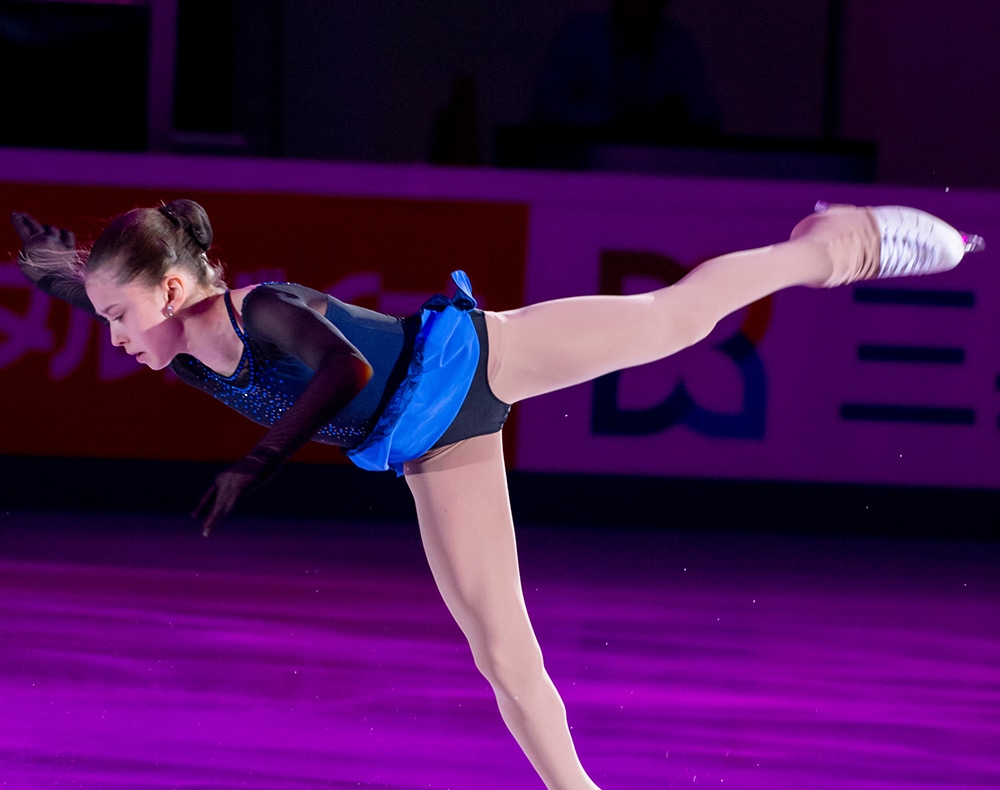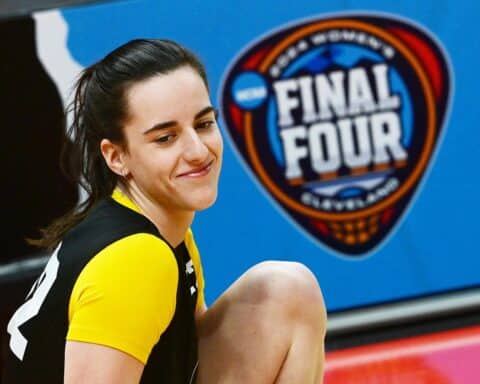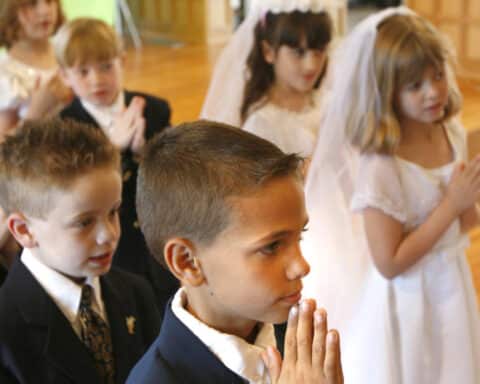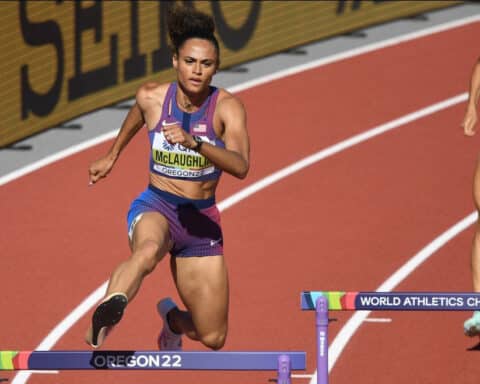Kamila Valieva’s free skate and its aftermath at the Beijing Olympics on Feb. 17 were five of the most difficult minutes of an Olympic Games to watch in recent memory.
Valieva, who went into the free skate leading the women’s figure skating competition, ended her first Olympics in fourth place, failing to medal in an event in which she was strongly favored to win gold. Her skate, laden with falls and errors, reflected a real-time cracking under pressure by the 15-year-old Russian on the world’s biggest sporting stage — pressure only compounded by the fact that she had failed a drug test just prior to the start of the Games and was only being allowed to compete after winning an appeal to the Court of Arbitration for Sport.
Ironically, the reason the court gave for allowing Valieva to continue was because it viewed her as a “protected person” — that is, someone too young to understand the substance she ingested. She was not treated as a protected person by her coach, however, who berated the girl as she exited the rink in tears, asking in Russian, “Why did you stop fighting? Explain it to me — why?”
The case of Kamila Valieva is extreme, on an international stage, and rooted in a particular cultural and competitive background, and yet it invites universal reflection on the nature of sport, its proper role in the lives of young people, and whether or not adults are failing children by how they integrate sports into family life.
As parents and/or coaches, we naturally want our children to succeed. But do we think enough about the repercussions of how we manifest our desires for their success, especially on the field or in the arena? What kind of pressure do we put on our children from a young age to watch the ball, run harder, focus better — and, ultimately, to win? How do we balance our very real desires for our kids to be the best with ensuring that we first and foremost focus on the formation of their whole person?
Pope St. John Paul II, himself a lover of sport, explored these challenges during a homily on Oct. 29, 2000, on the occasion of a jubilee of sportspeople.
“Playing sports has become very important today, since it can encourage young people to develop important values such as loyalty, perseverance, friendship, sharing and solidarity,” he said. “Precisely for this reason, in recent years it has continued to grow even more as one of the characteristic phenomena of the modern era, almost a ‘sign of the times’ capable of interpreting humanity’s new needs and new expectations.”
He went on to describe how sports can contribute to peaceful understanding between people, “establishing [a] new civilization of love.”
But he also wisely acknowledged that an examination of conscience is necessary to ensure that sport achieves these positive goals while avoiding any possible pitfalls. “The educational and spiritual potential of sport must make believers and people of goodwill united and determined in challenging every distorted aspect that can intrude, recognizing it as a phenomenon opposed to the full development of the individual and to his enjoyment of life,” he said. “Every care must be taken to protect the human body from any attack on its integrity, from any exploitation and from any idolatry.”
As parents encourage necessary physical activity in their children, we may do well to consider: Do we put undue pressure on our children to play a certain sport, and to excel in that sport no matter what? Do we encourage a healthy sense of competition, or do we focus on winning at all costs? Do we keep a proper balance between sports and other activities, ensuring that sports are integrated into our family’s life and not dominating it? Do we prioritize our family’s spiritual life — especially attending Sunday Mass — over the demands of a sports league? Are our children thriving in a way that helps them grow as a whole person — body, mind and spirit — while playing sports, or is one aspect being focused on to the detriment of the others?
As we care for our own “protected persons,” it is our privilege to discern the answers to such questions, allowing us to provide the best possible formation for our loved ones — whether they become Olympians or not.
Our Sunday Visitor Editorial Board: Gretchen R. Crowe, Scott P. Richert, Scott Warden, York Young





